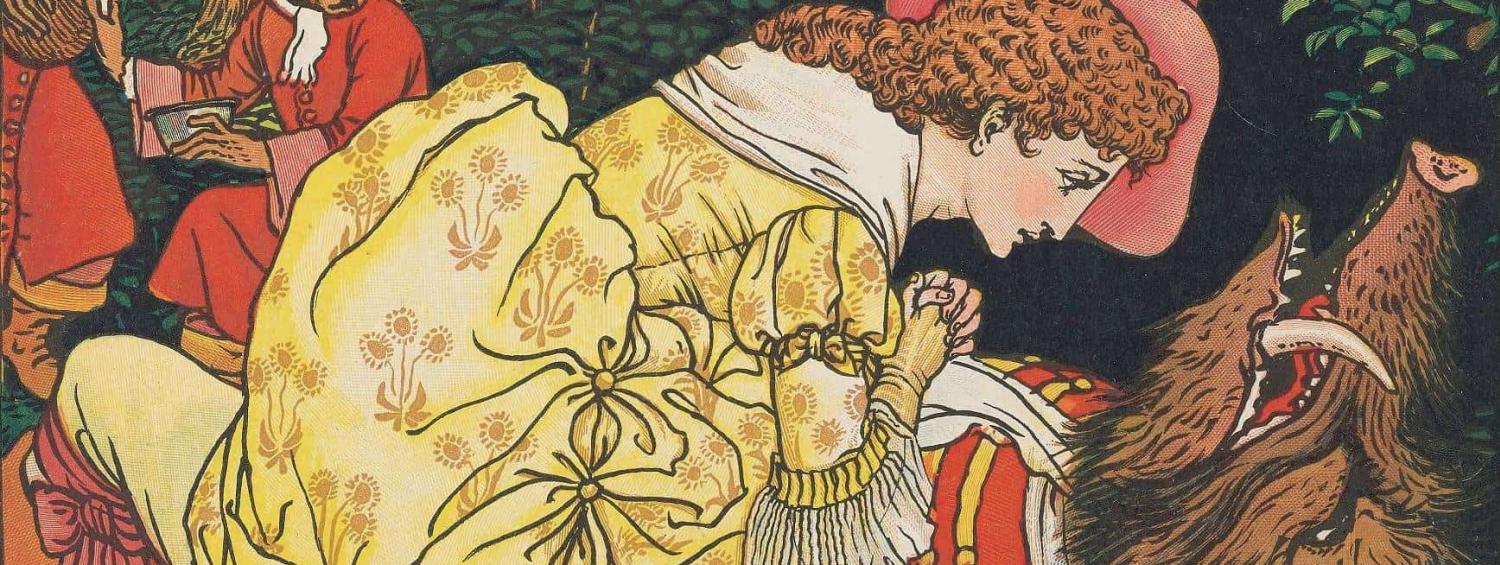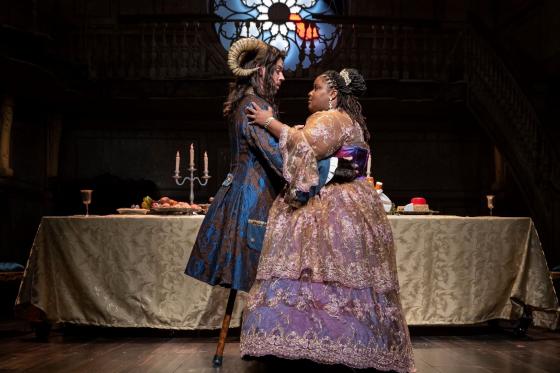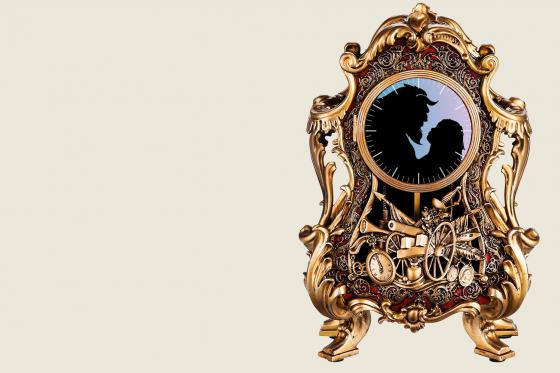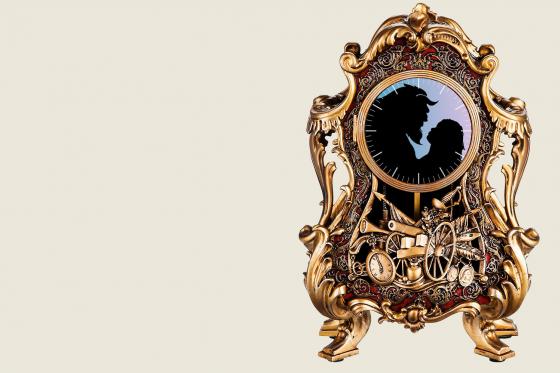Disney’s primary inspiration for their Beauty and the Beast story is French author Jeanne-Marie Le Prince de Beaumont’s La Belle a la Bête. Published in a Children’s Collection in the 1740s, La Belle et la Bête has some key differences from the Disney tale that may surprise you!
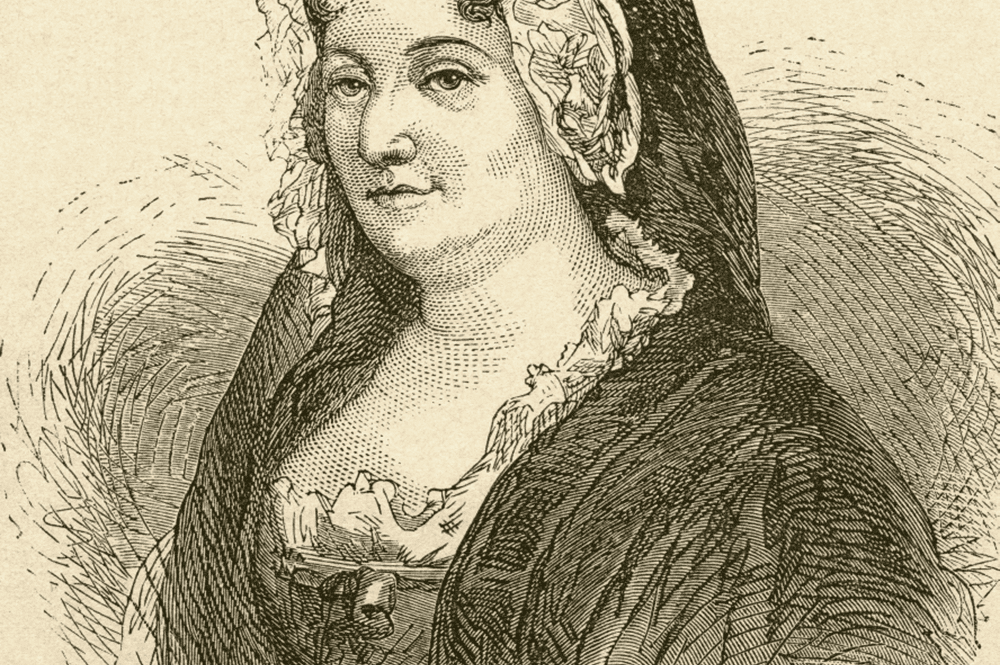 Image credit
Image credit
Who was Jeanne-Marie Le Prince de Beaumont?
Jeanne-Marie Le Prince de Beaumont was born in Rouen, France. She lost her mother when she was only eleven years old, after which, she was mentored by two wealthy women who entered her into a convent school. She began teaching at the same school at the age of 20, but left a few years later for “less than exemplary behavior.” Madame de Beaumont received her surname following her marriage to Antoine Grimand de Beaumont. Most sources claim their marriage wasn't a happy one. It was likely arranged for economic reasons — though the debate between marriage as a romantic proposition or an economic one was just starting to be had. Her marriage was annulled two years later and Madame de Beaumont went on to have a career as a governess and a writer in England. In fact, most of her books were written with the express purpose of teaching moral lessons to young girls, including her version of La Belle et la Bête. By the time she passed away in 1780, she had published more than seventy books.
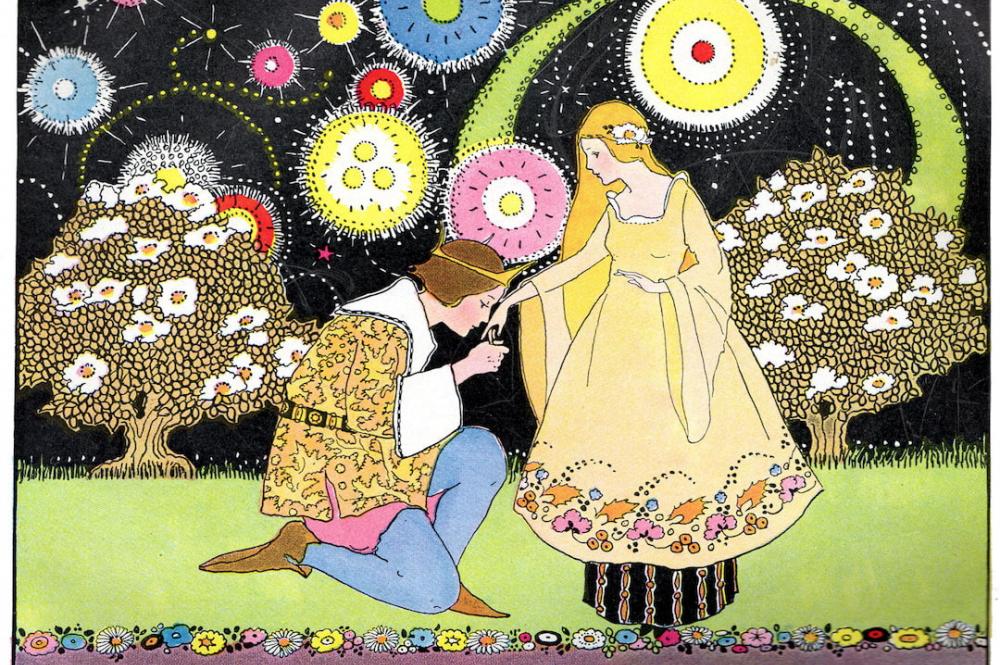 Image credit
Image credit
Synopsis of Beaumont’s La Belle et La Bête
Beaumont’s 12-page story tells the tale of a Merchant and his children. The Merchant has three sons and three daughters, the youngest of which is so beautiful that everyone calls her Beauty. At the beginning of the story, the Merchant loses his entire fortune, except for a country house, forcing his family to move there and work for a living. Beauty is the only child who commits herself to work on the farm, her sisters refusing to do anything and the sons absent. The sisters spend their time being deeply jealous of Beauty and mocking her. In order to better their lives, The Merchant sets off to try and gain back his fortune. Before he leaves, his arrogant daughters ask him to bring them back expensive gifts. Beauty only asks for a single rose upon his return.
The Merchant sets out to regain his fortune, but is unsuccessful. On his way home, he gets lost in the forest and happens upon an empty palace. Fearing the wolves in the forest and starvation, the Merchant takes it upon himself to stay in the palace, eating and drinking to his heart's content. He assumes that a fairy has blessed him and sets on his way in the morning feeling refreshed. Just before he leaves, he notices a rose bush outside. When he plucks a single rose from the bush, the Beast emerges. The Beast is enraged that he would steal from him after he saved his life, citing his roses as the most valuable things he owns. The Beast states he will die for this offense. Pleading for his life, the Merchant mentions that the rose is for his daughter, and the Beast offers that he may trade Beauty for the rose in order to spare his own life. Generously, the Beast sends the Merchant home to fetch Beauty with a chest of gold.
Unwilling to sacrifice his daughter, the Merchant fully intends to return to the castle to die. However, Beauty willingly goes to the castle and surrenders herself to the Beast. The Beast is extremely deferential and lets her know she is the mistress of the castle and he will do what she says. All the Beast asks of Beauty is that she comes to dinner nightly and let him ask her one question: will she be his wife? Though she is initially frightened by him, Beauty grows to enjoy the Beast’s company, as he is actually quite a gentle soul despite his outward appearance.
A magical book in Beauty’s room allows her to see her heart’s desire; Beauty’s one wish is to see her father, to make sure he is doing alright. Unfortunately, the Merchant is ill, and Beauty begs to go and see him. The Beast concedes; he allows her to return home for one week, warning her that if she does not return he will likely die of sadness.
When Beauty returns home her father is overjoyed to see her. This joy is contrasted by her jealous sisters who are unhappy, as they enjoyed life without her. They hatch a plan to trick her into staying longer, hopeful that the Beast will be enraged and kill her upon her return. They rub onions over their eyes and weep when Beauty tries to leave, causing her to stay at home. But Beauty cannot bear to cause the Beast pain, and quickly changes her mind. Upon her return to the castle, she finds the Beast has been starving himself out of grief and is close to death. In that moment, she agrees to be his wife:
"No, dear Beast," said Beauty, "you must not die. Live to be my husband; from this moment I give you my hand, and swear to be none but yours. Alas! I thought I had only a friendship for you, but the grief I now feel convinces me that I cannot live without you."
Upon this admission, the Beast is transformed into a handsome Prince. The fairy who cursed the Beast returns! She states that because Beauty preferred virtue above all other qualities in a husband, she deserves someone in whom these qualifications are united. Beauty and the Prince will now rule the kingdom, and the fairy’s final act is to transform her wicked sisters into stone statues at the front of the castle — forever cursed to watch Beauty live happily ever after.
